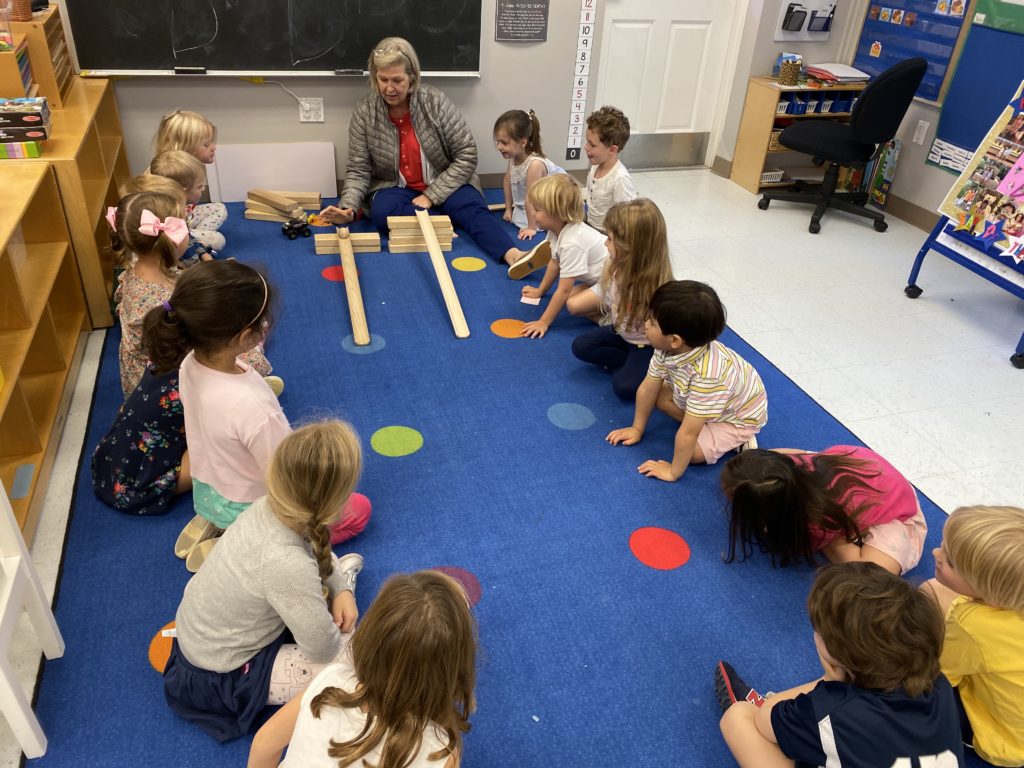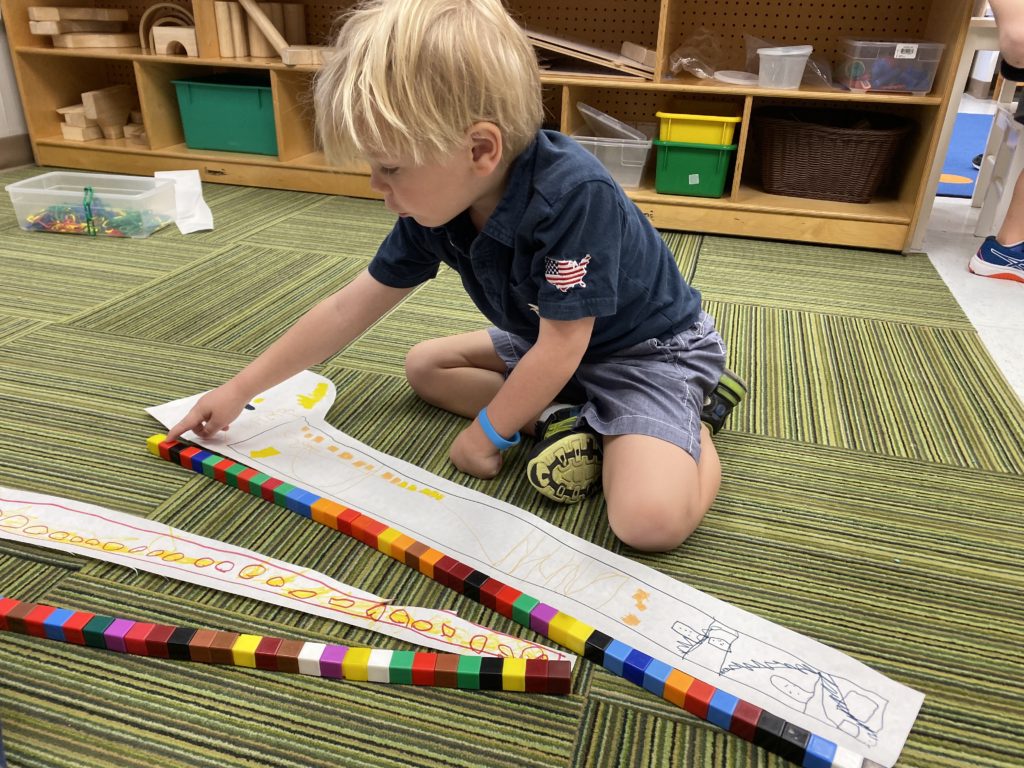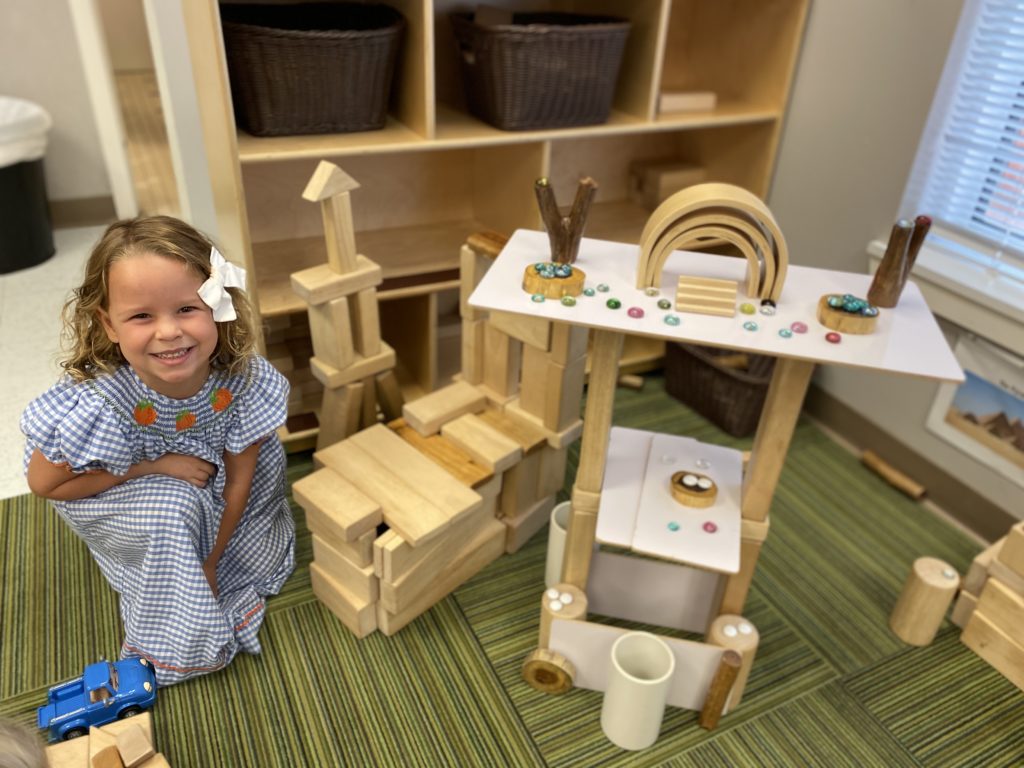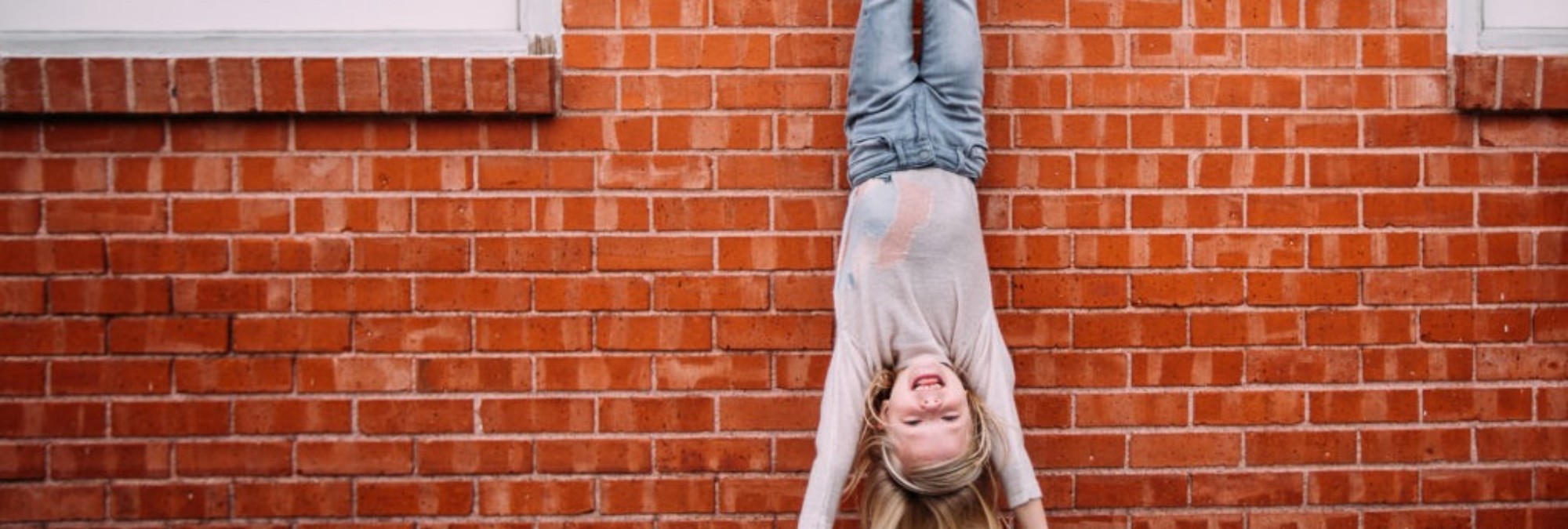Parents interested in giving young children an academic edge should put away the textbooks and get the toys out. When children play, they are mentally active, engaged, socially interactive, and building meaningful connections to their lives. Play is therefore one of the richest and most effective learning strategies in a preschool educator’s toolbox.
Instructional coach Sarah Graham describes how ROBS’ littlest learners spend their school days. Even though it may look like they are just playing freely, it has all been purposefully planned.
Purposeful Play
If “play is the highest form of research,” according to Albert Einstein, then our preschoolers are engaged in the highest form of research every day. Purposeful play fosters creativity, exploration, and meaning-making by our children. It supports language development and social-emotional growth while sharpening their newly emerging literacy, math, science, and engineering skills. Through play, our children learn empathy, role play and problem-solving. Teachers are intentional in creating play experiences for our children that build their knowledge and skills, and take children to the next level of their abilities.

Center Time
Center time in our preschool includes a balance of small group instruction and guided play. In small group time, teachers plan playful activities in literacy, math, science, engineering and art. During this time, you might find our students matching letters and sounds, reading patterned books with predictable text, playing a counting game with dice, making prints with fruits and vegetables, building shapes with marshmallows and toothpicks or acting out a story with a felt board. These engaging experiences are designed to build specific early academic skills.

Guided Play
Guided play, directed by children and facilitated by teachers, is just as purposeful and just as important. Guided play promotes the deepest kind of learning by encouraging children to become self-directed learners who explore, develop curiosity, and solve their own problems.
During guided playtime, our students might choose to turn the block center into a dragon’s lair, make spaceships with magnetic tiles or turn the dramatic play center into a donut shop, complete with a child-written price list. This kind of make-believe play bolsters children’s imaginations, builds their vocabularies, and enhances their social skills. Teachers lift the level of children’s play, helping them sound out words to create a sign for the bakery or to negotiate who gets to be the cashier. They might help deepen a play scenario while reinforcing target vocabulary like talons and nostrils in the dragon’s cave. As a group creates towers with Magna-Tiles, the teacher might scaffold their geometrical knowledge by describing the shapes they are using or challenging a child to use squares to create a cube, making the rocket more sturdy.

Self-Chosen Play
Self-chosen play, guided by teachers, does more than promote academic skills. Preschoolers need time and freedom to practice their social abilities such as sharing, taking turns, and listening. Playing together is the best way for children to learn how to solve their own problems. During our guided playtime, you might hear a spirited negotiation over whose turn it is to build a city or to play in the sensory bins. Children will inevitably experience conflicts while playing and this is a good thing. It gives them the opportunity to deal with their feelings of frustration. They learn how to regulate their emotions and settle disputes so the fun can continue. Our astute preschool teachers know how to stand back and watch, letting children figure out these social situations and intervening only when necessary.
We agree with Mr. Rogers who said, “Play is often talked about as if it were a relief from serious learning. But for children play is serious learning. Play is really the work of childhood.” With this definition in mind, we are happy to see our preschool children working hard every day.
Sarah Graham is a licensed reading specialist, master teacher, and instructional coach specializing in early childhood development. She currently serves the Preschool and Kindergarten at River Oaks Baptist School in Houston, Texas.

